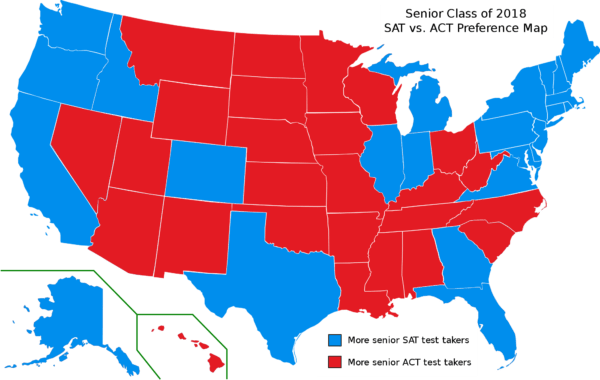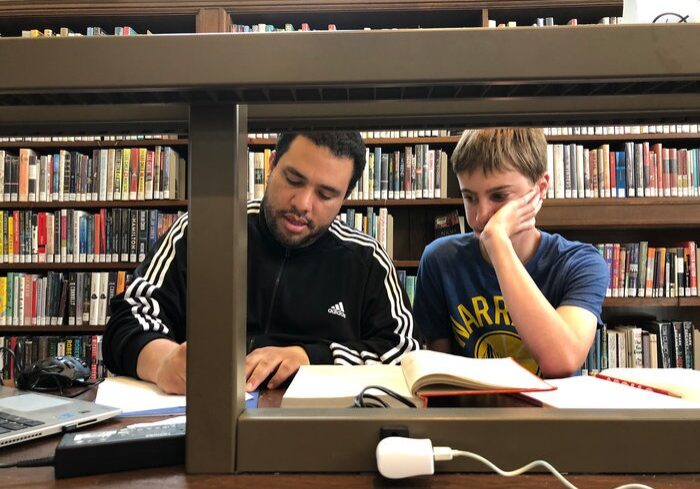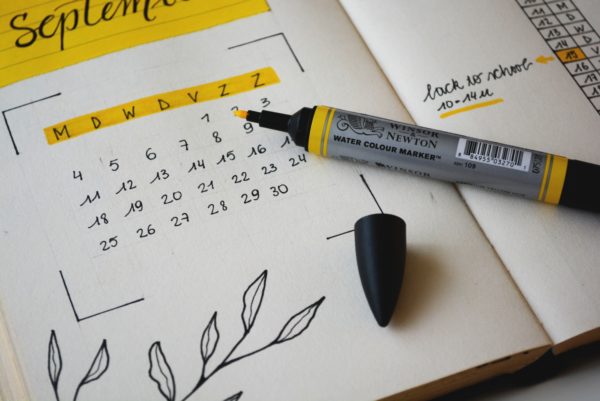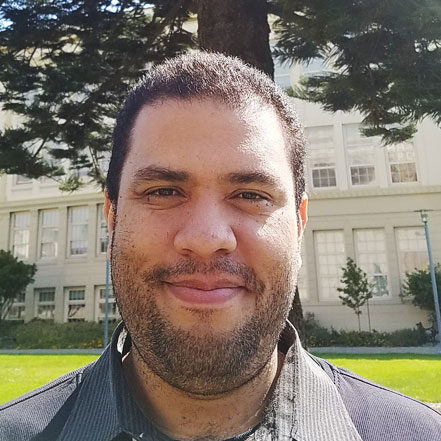Get an SAT or ACT tutor!
Standardized tests are lame. You're a person, not a number. We get that.
However, investing in a better SAT or ACT score will open more doors. Let's open those doors together.
How We Do SAT & ACT Tutoring
Our SAT and ACT tutors are experts. They will prepare you for everything.
- 12 sessions, one hour each
- One-on-one with an SAT or ACT expert
- Improve practice test scores as you go
Students will take timed practice exams between tutoring sessions. We will analyze your results to find weaknesses. Then assign drills until you begin to recognize types of problems.
We will monitor improvement in real-time. When you take the actual exam, we will know what score to expect!
The Truth About The Sat & ACT
We get it. When it comes to the SAT and ACT, you don’t like it. We don’t like it. Your student doesn’t like it.
We call it “math with a gun to your head.” The exam requires you to solve problems fast. It even tries to trick you!

As empathetic educators,
We remember how intimidating math can be, and how it can make you feel. The struggle is real. Our goal is to help convert those negatives into positives. Especially in online classrooms.
As Math & Science Enthusiasts,
We are here to make math cool again. Math is the door and key to the sciences. We invite you to see mathematics through our eyes.
As Passionate Inspirationists,
We know math is about creativity and making sense of our world. Let us build your child's confidence by exploring the language of our universe.
SAT & ACT Tutors
San Francisco Testing Sites
The SAT is available at the following sites in the San Francisco Bay area:
ARCHBISHOP RIORDAN HS
www.riordanhs.org
175 Phelan Ave/Frida Kahlo Way
San Francisco, CA 94112
(415) 586-8200
IMMACULATE CONCEPTION
www.icacristorey.org
3625 24th Street
San Francisco, CA 94110
(415) 824-2052
SACRED HEART- PREP
www.shcp.edu
1055 Ellis Street
San Francisco, CA 94109
(415) 775-6626

- Take timed practice exams of both and see which you do better on.
- The advantage of the ACT is the math questions are more straightforward.
- The SAT has harder problems and more trick questions.
- The ACT has a science section that the SAT does not have. If you excel in science, consider the ACT.
- Students with learning differences tend to do better on the ACT.
- Students that excel in math tend to do better on the SAT.
You won’t know for sure until you take a timed practice exam for each. All students should do this.
SAT & ACT Tutoring FAQ
The SAT is one of the entrance exams used by colleges and universities to make admissions decisions.
It is a multiple-choice, pencil-and-paper test created and administered by the College Board.
The exam will measure your readiness for college.
It serves as one common data point that can be used to compare all applicants.
College admissions officers review:
- Standardized test scores
- GPA's
- Classes taken
- Letters of recommendation from teachers or mentors
- Extracurricular activities
- Admissions interviews
- Personal essays
How important SAT scores are in the process varies from school to school.
The higher you score on the SAT and/or ACT, the more options will be available to you.
There are two sections of the SAT:
Math
Evidence-Based Reading and Writing
The Math section has two parts. In one, you can use a calculator. On the other, you cannot.
The Evidence-Based section has two tests. One for writing and one for reading.
There is an optional Essay section. Check to see if your school requires it.
You can take the SAT when you are just a freshman in high school.
Most people take it in the spring of their junior year.
This gives you enough time to take the test twice.
This is highly recommended!
67% of students will improve their scores the second time around.
When you receive your initial test, you'll know your weak points. Then you can prepare to retake the test if you like.
If you're not satisfied with your initial score, you can take the test for the second time in the fall of your senior year.
Registration for the SAT needs to be completed by you, the student. Not by your parent or guidance counselor.
To register:
- Pick your test date.
- Decide between the SAT and the SAT with Essay, which is optional.
- Register on the College Board website. (Collegeboard.org)
- Be sure all your personal data matches the exact information on your photo ID.
- For identification purposes, upload a picture of yourself.
- Pay a registration fee, which is $46 for the SAT and $60 for the SAT with Essay. Fee waivers are available for those in low-income households.
- Once your registration is complete, be sure to print out your Admission Ticket, as you'll need it on the day of your test.
The ACT is a standardized test that evaluates 4 distinct areas of study:
- English
- Mathematics
- Reading
- Scientific Reasoning
There is also an optional writing section.
The ACT is accepted by all colleges and universities in the United States and serves as an acceptable substitute for the SAT.
The ACT consists of 215 multiple choice questions covering the following 4 topics:
- English (75 questions in 45 minutes)
- Mathematics (60 questions in 60 minutes)
- Reading (40 questions in 35 minutes)
- Scientific Reasoning (40 questions in 35 minutes)
There is also an optional writing section (40 minutes).
English
The English section of the ACT consists of 75 questions in 45 minutes; or an average of 36 seconds per question. It is broken into 2 sections:
- Usage and Mechanics (40 questions). This section of the ACT tests the following skills:
- Punctuation
- Grammar and Usage
- Sentence Structure
2. Rhetorical Skills (35 questions). This section of the ACT tests the following skills:
- Strategy
- Organization
- Style
The mathematics section of the ACT consists of 60 questions in 60 minutes; or an average of 1 minute per question. This section covers the following math topics:
- Pre-Algebra (14 questions)
- Elementary Algebra (10 questions)
- Intermediate Algebra (9 questions)
- Coordinate Geometry (9 questions)
- Plane Geometry (10 questions)
- Trigonometry (4 questions)
Reading
The reading section of the ACT consists of 40 questions in 35 minutes; or an average of 52.5 seconds per question. It consists of 5 passages with a set of questions on each. The topics for the passages are always taken from the following subjects:
- Social Studies
- Natural Sciences
- Literary Narrative and Prose Fiction
- Humanities
Scientific Reasoning
The scientific reasoning section of the ACT consists of 40 questions in 35 minutes; or an average of 52.5 seconds per question. It is broken into 7 passages with a set of questions on each. The topics include biology, chemistry, physics, and Earth and space sciences. It is further broken down into the following sections:
- Data Representation
- Research Summaries
- Conflicting Viewpoints
Writing (optional)
The writing section of the ACT consists of a series of prompts that the student must answer in essay form. The prompts always cover social issues and ask the student to analyze multiple perspectives of the same topic. The writing section of the ACT is 40 minutes in length.
Most students take the ACT during their junior year of high school, however anyone 13 years of age and older can take the ACT. When you decide to take the ACT depends on a variety of factors:
Should you take it before your junior year?
The problem with taking the ACT prior to your junior year is you probably will not have seen all of the topics in your classes yet, especially in the math section. However, if you are an advanced student and know math up to trigonometry, you could consider taking the ACT prior to your junior year. The advantage of taking the ACT early is it gives you the opportunity to retake it many times to improve your score.
Should you take the ACT your senior year?
By waiting until your senior year you should definitely have seen all the available topics in your high school classes, therefore you should be more prepared. If you do choose to take it your senior year, keep in mind that college applications are due around November and December, so you’ll want to do it in the fall semester. The disadvantage of waiting until your senior year is you will have fewer opportunities to retake the ACT and improve your score.
Should you take the ACT over the summer?
Summer is an ideal time to prepare for the ACT as you don’t have to worry about a full course load to keep up with. This allows you to focus all of your attention on the ACT.
You can register for the ACT on the official ACT website. The registration deadline is about 5 weeks prior to the exam. There is also a late registration date about 3 weeks before the exam. You will need a headshot photo as well as your high school ID.
The ideal time to get a tutor for the SAT and ACT is 3 months before your test date. This gives you enough time to properly prepare for the exam. You can certainly get an SAT and ACT tutor earlier than 3 months, however you risk forgetting some of the material. A focused 3 month preparation period is ideal.
An SAT and ACT tutor will be helpful no matter what time frame you choose. Even 1 month of tutoring before the exam will make an impact on your score.
You should get an SAT or ACT tutor if you did not get the score you want.
First, make a list of the colleges and universities you would like to get into.
Then do a Google search to figure out the average SAT or ACT score of admitted students.
If your score is below these numbers, then it's time to get an SAT or ACT tutor. Tutors can be very helpful for quickly learning the best practices for standardized test-taking. They can also give you feedback on your practice exams. Take as many timed practice exams as possible, and review the problems you got wrong with your tutor. They can then show you the best way to solve the problem. Many of the problems on the math sections of the SAT and ACT can be solved quickly using a trick. Your tutor can show you the tricks needed to solve the problems quickly.
The best way to determine whether to take the SAT or ACT is to take timed practice exams of each. The idea is to simulate the actual exam to the best of your ability, so get a timer and sit down and take each like it was the real thing.
Then take the one you did better on.
The math section of the ACT is easier than the SAT, and there are less tricks. Many of the questions on the SAT are designed to trick the student. If you make a common mistake on the math section, that answer will be one of the options.
The ACT has a science section, whereas the SAT does not. Therefore if you are a strong science student, you may want to take the ACT. If science is not your best subject, you might consider the SAT.
The latest in SAT/ACT
Ultimate Guide to Find a Math Tutor for Your Child: Costs and Details
ACT vs. SAT: Which One Should You Take?
How to study for the SAT




















